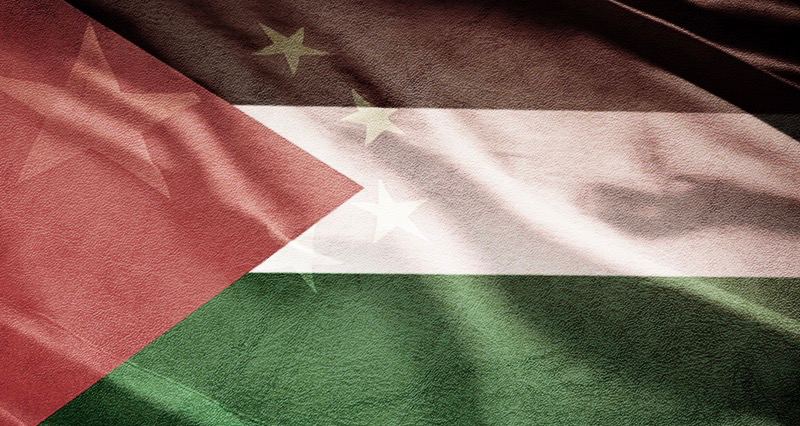By Orçun Göktürk / Beijing, China
Upon China’s invitation, 14 Palestinian political factions, including Fatah and Hamas, held a reconciliation meeting in Beijing from July 21-23. The meeting has a unique and historical significance for the internal unity of the Palestinian resistance.
China’s Palestine policy is intertwined with its Middle East strategy and has deep historical roots. China officially recognized Palestine in 1988 but has had advanced relations with the Palestine Liberation Organization (PLO) since the early 1960s. China was the first non-Arab state to recognize the PLO, and former PLO leader Yasser Arafat visited Beijing 14 times between 1965 and 2000. China’s founding leader Mao Zedong described Israel as “the base of imperialism in West Asia” and emphasized its similarities with Taiwan.(1) It is also known that China has provided arms aid to the Palestinian resistance in addition to ideological support.
Mahmoud Abbas visited Beijing in June last year, becoming the first Arab leader to visit China in 2023. In fact, we can say that the foundations for bringing together Palestinian political groups in Beijing were laid then. At the “China-Arab States Summit” held in Riyadh at the end of 2022, Xi Jinping made a direct statement of support for Palestine, saying, “We support an independent and sovereign Palestinian state with East Jerusalem as its capital.”(2)
China-Israel Relations
As a result of the post-Mao foreign policy course of the country’s strategy of “keeping a low profile that prioritizes development”, China began to develop bilateral relations with Israel in the 1980s. In 1992, China and Israel made bilateral relations diplomatic official by appointing embassies, and since then, Israel and China have developed technological and economic relations, especially in the defense industry.
Until recently, Beijing has carefully avoided direct confrontation with Israel. Israel is one of the countries in the Middle East where China has invested heavily. Most of these investments are part of the Belt and Road Initiative (BRI). These include agreements to develop energy and telecommunications providers and data centers, such as the deal between Huawei and Israel’s Zing Energy.(3) In addition, many deals worth millions of dollars, such as the $300 million deal between Israeli company ColorChip and Chinese companies, have increased the two countries’ interdependence.(4)
Considering the impact of relations with Israel on China’s defense industry, the US was finally beginning to pressure Israel to “reduce its ties with China.”(5) In fact, a few years ago, at a time when BRI investments were on the rise, the British magazine The Economist ran a cover story titled “Israel is being forced to choose between the US and China”. (6) At the time, Israeli officials issued one press release after another, claiming that Chinese investment would be limited to the “port and business” sectors and that the partnership would not be furthered in the “cyber and security” sectors.
Turning point: October 7
China’s diplomatic strategy in the Middle East is generally based on financial investments along the Belt and Road. However, the rise of Palestinian resistance against years of systematic inhumane Israeli aggression, torture and rape after October 7 and the sharp polarization in the world against the Palestinian issue forced China to take a new direction. On October 19, 2023, following a meeting with his Egyptian counterpart, Chinese President Xi called on all sides to de-escalate tensions as soon as possible and reiterated his support for Palestine, reiterating his proposal for the establishment of an independent Palestinian state and a two-state solution to resolve the conflict:
“The fundamental way out of the recurrent Palestinian-Israeli conflict is to implement the two-state solution, establish an independent Palestinian State and ensure peaceful coexistence between Palestine and Israel.”
The polarization over Palestine-Israel not only triggered a geopolitical rift across the globe, but also reasserted the power struggle between China and the US. While China has increased its support for Palestine and oppressed nations, the US has increased its support for the aggressive Israeli regime. This culminated in the joint declaration by 14 Palestinian political groups in Beijing, while Netanyahu received 58 standing ovations in the US Congress.
The historical significance of the ‘Beijing Consensus’
The gathering of 14 different Palestinian factions, mainly Hamas and Fatah, is historic and unique. Because the Palestinian issue has external requirements, such as achieving regional reconciliation, especially among Arab states, as well as internal requirements, such as achieving internal reconciliation and unity in Palestine, is taking an important course. In this sense, Beijing is playing its leading role after a long time.
Previously, Hamas and Fatah failed to come together in Istanbul, Cairo, Doha or Algiers. Now this unity has been achieved and, more importantly, a course of resistance has begun to be established. The unification of all factions under the Palestine Liberation Organization, the legitimate representative of Palestine, and the targeting of an interim government with an election timetable are part of this route of resistance. Thus, some Gulf countries, which are ‘Hamas-allergic’, may take a more leading position on the Palestinian issue. Of course, there may be disagreements and conflicts within this route. However, achieving intra-Palestinian unity is of historical importance for the establishment of an independent and free Palestinian state and the success of the resistance.
Sources
(1) John K Cooley. “China and the Palestinians”. Journal of Palestine Studies, no. 2. 1972: 21
(2)Xinhua. “Full Text of Xi Jinping’s Keynote Speech at China-Arab States Summit”. December 09, 2022. https://english.news.cn/20221210/9c4e2500c7da4a6b84f11b57bfb64ef9/c.html.
(3) CTech. “Huawei Enters Israeli Solar Electricity Market”. June 27, 2019. https://www.calcalistech.com/ctech/articles/0,7340,L-3765224,00.html.
(4) Reuters. “Chinese firm close to buying Israel’s ColorChip for $300 million”. August 27, 2018. https://www.reuters.com/article/israel-tech-colorchip-china-idINKCN1LC0NK/.
(5) Gradstein, Linda. “US Presses Israel to Pull Back on Ties with China”. June 14, 2023. https://www.voanews.com/a/us-presses-israel-to-pull-back-on-ties-with-china/7136909.html.
(6)The Economist. “Israel is being forced to choose between America and China”, July 2021.

















Leave a Reply